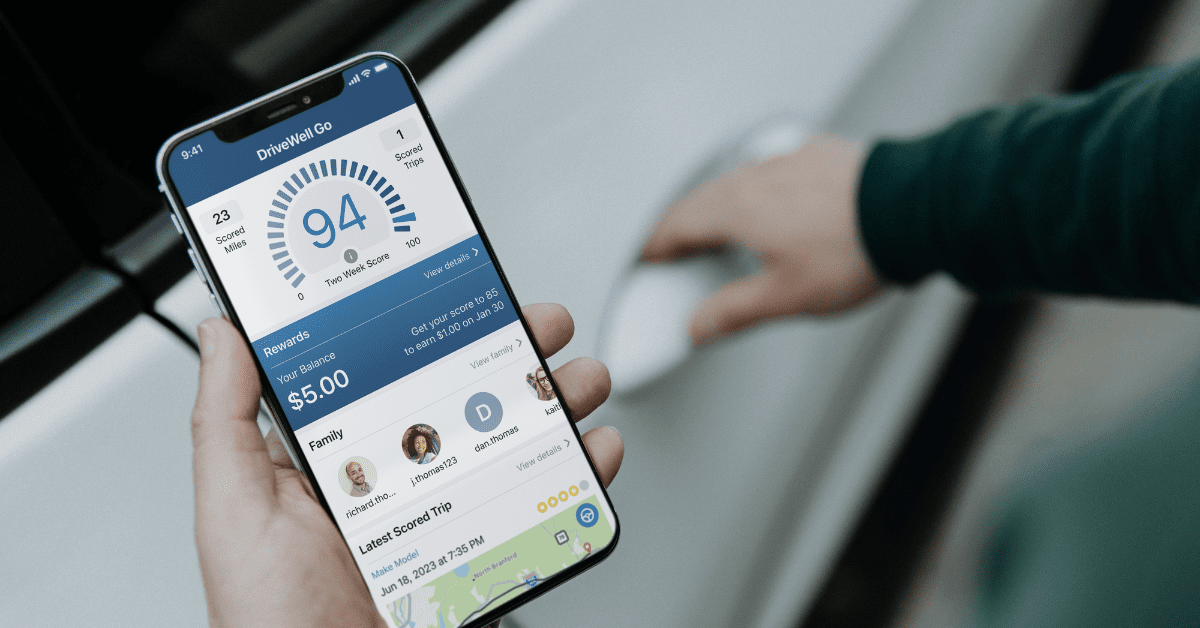New Research from Cambridge Mobile Telematics Connects Telematics Program Engagement to Crash Reductions
The in-depth study — to be presented at the Transportation Research Board today — shows that program engagement improves driving safety for all

Cambridge, MA, January 8, 2024 — Cambridge Mobile Telematics (CMT), the world’s largest telematics service provider, today released a new study titled “The Importance of Engagement in Safe Driving Programs.” The study offers a comprehensive look at the crucial role user engagement in telematics programs plays in reducing road risk. It found that the riskiest drivers with the highest engagement reduced their likelihood of a bodily injury claim by 5.5%.
The study follows the driving performance of 100,000 drivers enrolled in usage-based insurance programs in the US over the course of three months. CMT researchers divided the drivers into risk groups based on driving score, with 20% falling into the riskiest driving population. They then analyzed how often drivers open their telematics app throughout the program’s first three months, finding that 12% of drivers were highly engaged, opening the app over 20 times in a four-week period. Unlike prior research, the study evaluates multiple risky driving behaviors, including hard braking, distracted driving, and speeding while controlling for mileage.
Of the riskiest drivers, CMT researchers found that the most engaged dramatically improved their driving performance. From month one to month three, the riskiest drivers with the highest engagement improved distracted driving by 20%, hard braking by 9%, and speeding by 27%. By analyzing telematics data against 1,500 insurance claims, CMT researchers calculated that the improvement in driving performance among the riskiest drivers would result in a bodily injury claim reduction of 5.5%.
“This research shows how crucial program design is for usage-based insurance programs. Not only will well-designed programs focused on generating engagement help insurers better segment risk, they’ll actually reduce it,” said Lisa Pinals, a Principal Data Scientist for CMT, and lead researcher on the study. “More importantly, this research provides insurers and mobility companies with a roadmap to prevent road injuries and fatalities.”
While the study focuses on the improvements of the riskiest drivers because of their impact on overall road safety, the data shows that drivers of all risk levels improve with higher program engagement.
Beyond the results themselves, the new study shows the kind of road safety research that’s possible with telematics. Historically, road safety studies have relied on a combination of observational data, self-reported behaviors, and crash reports. CMT’s data allows researchers to study driving behaviors at scale, continuously, and in near real time, providing an unprecedented view into driving risk and the methodologies that reduce it.
CMT is presenting the study’s findings at the Research Transportation Board annual conference today. The study is available here.
About Cambridge Mobile Telematics
Cambridge Mobile Telematics (CMT) is the world’s largest telematics service provider. Its mission is to make the world’s roads and drivers safer. The company’s AI-driven platform, DriveWell®, gathers sensor data from millions of IoT devices — including smartphones, proprietary Tags, connected vehicles, dashcams, and third-party devices — and fuses them with contextual data to create a unified view of vehicle and driver behavior. Companies from personal and commercial auto insurance, automotive, rideshare, smart cities, wireless, financial services, and family safety industries use insights from CMT’s platform to power their risk assessment, safety, claims, and driver improvement programs. Headquartered in Cambridge, MA, with offices in Budapest, Chennai, Seattle, Tokyo, and Zagreb, CMT measures and protects tens of millions of drivers every day.